[This story contains major spoilers from the second season of The Night Agent.]
Heading into the second season of The Night Agent — Netflix’s spy action thriller series about a low-level FBI agent who goes from manning an emergency hotline for secret agents investigating issues of classified intelligence to being one of those international agents — creator and showrunner Shawn Ryan knew he wanted to push his beloved protagonist Peter Sutherland (Gabriel Basso) further into morally grey territory.
“In season one, things were logistically very difficult for Peter, but morally pretty easy. In season two, I want things to remain logistically difficult for Peter, but I want them morally to get more difficult,” Ryan tells The Hollywood Reporter in the interview below. “He probably had a little bit of a naïve view of what [being a Night Agent] would mean, probably felt that he could keep his morals and his moral compass intact doing it, and he learns in the course of season two that that’s not so easy.”
(Spoiler alert!) After thwarting an assassination attempt on President Travers (Kari Matchett) from within her own government at the end of the first season, Peter was promoted to Night Action and tasked with investigating an intelligence leak that takes him from Bangkok to New York City. Peter eventually uncovers the existence of Foxglove, a joint CIA-military program that was aimed at combating the future of chemical warfare but quickly shuttered due to the ethical concerns of manufacturing life-threatening chemical agents for research purposes.
But after the U.S. government covered up the fact that it had sold one of those chemical agents, KX, to an authoritarian dictator named Viktor Bala (Dikran Tulaine), Bala, who was recently convicted of war crimes by The Hague, vowed to exact revenge using a team led by his nefarious nephew, Markus Dargan (Michael Malarkey). After Markus and his men steal a mobile lab and kidnap Peter’s tech-savvy love Rose (Luciane Buchanan) along with a chemist and his family, with the express intention of forcing the chemist to manufacture canisters of KX, Peter attempts to negotiate a deal with powerful businessman Jacob Monroe (Louis Herthum).
Monroe offers to give Peter valuable information about Rose’s whereabouts — and Bala’s larger plan to use manufactured KX to wipe out Manhattan — in exchange for Peter breaking into the UN building and stealing a key tape for him. Despite the realization that he would essentially be putting himself at the mercy of Monroe, Peter begrudgingly agrees to the deal and helps stop a chemical weapons attack inside the U.N. building.
Even after coming clean to his bosses about all the protocols he broke in the process of saving Rose and New Yorkers in general, Peter discovers that his superiors have much bigger fish to fry. By the end of the finale, Peter’s inscrutable boss, Catherine (Amanda Warren), enlists him on a top-secret new mission: to ascertain the exact nature of the relationship between Monroe and Governor Richard Hagan (Ward Horton), the presidential candidate who used Peter’s stolen file to confirm that his main opposition, former CIA director Patrick Knox, was the one who green-lit the development of Foxglove and the sale of KX to Bala. (Peter, as it turns out, just aided and abetted in the swinging of the presidential election in Hagan’s favor.)
The Night Agent is one of the first big shows to premiere in the wake of the devastating wildfires in Los Angeles — a fact that Ryan wants to acknowledge at the start of his conversation with THR.
“One of my friends who lost her home is Lilly [Urban], one of our editors on The Night Agent, she edited episodes one, five and nine. I called her a couple days after she lost her house,” Ryan recalls. “I said, ‘Listen, I’m supposed to go to New York, and we’re having this screening and talking to the press. Is this appropriate, and is there any sort of message you’d want me to relay as someone who actually is a true victim of this fire?’
“She was like, ‘We all came to this town — meaning Los Angeles — because we wanted to tell stories. We all work so hard, we’re so proud of this season, and sometimes we need an escape from the realities of the world. I’m just proud of the show, and I just want as many people to watch it,’” he continues. “She, in a way, gave me some permission to come here and do these interviews, and I want to honor her work. It’s less of a celebration and more of an honoring of the work, in light of everything that we’re dealing with.”
Below, Ryan opens up about his approach to writing the second season of Netflix’s smash-hit series, how the creative team worked to honor the cultural nuances of the Iranian characters who play a key role in the season, Peter’s decision to break things off with Rose — and how that tense finale sets the stage for the already ordered third season, which began production late last year in Istanbul and will wrap in later this year in New York.
***
Given that you didn’t have a second book from Matthew Quirk to adapt for the second season, how did you think about expanding the world that you had created around Peter and Rose, and why did you decide to introduce the Iranian mission and Bala family storylines for season two?
In season one, we had the blessing and curse of having the book as source material. The blessing is that it’s such great source material; Peter and Rose are amazing characters. But as you’re working, you’re always trying to be careful; you want to be true and not betray the book. So in season two, when we ran out of that real estate, there’s a freedom that now comes with, “Hey, we can do whatever we want.” The downside is, boy, you forget how much stuff we just took from the book in season one that we can’t take now. (Laughs)
I was originally thinking about placing season two somewhere overseas [focusing] on Peter and wherever the job was. But after some conversations, I decided to keep it in North America. I was like, “If I’m not taking Peter out into the world, how can I bring the world to Peter?” That’s where the other writers and I crafted these stories that in many ways revolve around the United Nations and involve people from other countries congregating in New York.
I really liked the idea of doing a story in a foreign mission to the U.N. We ultimately decided on Iran and came up with this character of Noor to build it around. [We had] the idea of the Bala family, who’s from an unnamed country, but having an issue with the U.N. This broker, Jacob Monroe, wants these files from the U.N. So, really, it was an attempt to bring the world to Peter in New York City, [where] we were really thrilled to film in this season. I think we showed off the city in a way that you don’t often see.
What conversations did you have with Gabriel and Luciane about how Peter and Rose have evolved between seasons, and what new layers were you able to find in the writing of those characters and the push-and-pull of their relationship this time around?
I think when you put two very likable characters, who also happen to be very good looking people, together onscreen, there’s this kind of natural desire to see them end up together romantically. That did happen in season one. But it was important to us to be real about what would be happening in these situations.
We talked a lot about if Rose in real life went through what she went through in season one — being there as her aunt and uncle were killed, killers coming after her, narrowly avoiding death a few times, being attacked on that beach by Dale the assassin in episode six of season one — wouldn’t that just be horribly traumatic? Can you really bring that character back and act as if that didn’t affect her at all? So that’s where the therapist character came in, and the therapist talks about, “How long have you known this guy? These sorts of interactions can be intense, but maybe not long-lasting.”
Peter and Rose were such an anchor for us in season one, and we certainly wanted both of them to be parts of season two. Gut how can we be true to what their shared traumatic experience has been? These characters are in such two different places in their worlds — him as this night agent, her as this high-level tech person — that maybe their desires to be together are overridden by the realities of what it would mean to be together.

While working together on The Unit, David Mamet once told you that good drama isn’t a choice between good and bad; good drama is the choice between two bads. Peter is forced to make increasingly difficult decisions as a new night agent — lying to Noor (Arienne Mandi) about what happened to her brother in Iran, letting Solomon (Berto Colon) out of custody, and being forced to do the first of many favors for Monroe. How did you want to show the evolution of Peter’s descent into morally grey territory?
It’s very perceptive that you said that because I’ve been utilizing that quote, and that was something that I very specifically and intentionally came to the writers room with. I said to them, as we were at the beginning of writing season two, “In season one, things were logistically very difficult for Peter, but morally pretty easy. It was easy to know the right thing to do; it was tough to actually get it done. In season two, I want things to remain logistically difficult for Peter, but I want them morally to get more difficult.”
He wanted to be a night agent. He probably had a little bit of a naïve view of what that would mean, probably felt that he could keep his morals and his moral compass intact doing it, and he learns in the course of season two that that’s not so easy. In many ways, that’s where Rose is so important on an emotional level in season two. In season one, Peter protected her physically. In season two, Rose protects him emotionally. She’s the one that reminds him: “Don’t lose who you are in all this. Not everyone is [Hong Chau’s] Diane Farr. You don’t have to be paranoid about everyone in this world. You can accept help along the way.”
What I love is that it comes from a place of real love. Even if it becomes more difficult for them to be together as a couple, their feelings and connection only grow in season two. She badly wants to protect him. And then when her life becomes endangered in the second half of season two, when she’s taken hostage with the chemist and his family, we see the lengths that he’ll go to protect her, and we see the moral compromises that he’s willing to make to protect her and others.
Catherine (Amanda Warren) acts as an intriguing new foil to Peter, largely because Peter can’t read her very well and doesn’t know if he can fully trust her. How did you want to introduce Catherine and distinguish her from someone like Farr from season one?
We liked the idea that she’s done this work for a while and that she’s used to hiding her cards really well. At the same time, we knew that we could use Peter’s — and the audience’s — expectations that people in authority can’t be trusted on this show, in terms of what happened in season one, to build a little natural suspicion towards Catherine.
Peter is suspicious, and I think it’s probably not until episode seven, where they realize, “Oh, they were listening to our comms last night. Could they have gotten the encryption signals?” And realizing that, “Oh, that’s how the mission went bad in Bangkok.” That’s the first moment I think where Peter realizes, “In the back of my mind, I’ve wondered if Catherine set us up in some way,” and there’s this realization that, “Oh, I let my paranoia get in front of me.” So by the end of the 10 episodes, there’s certainly more trust with him.
But there’s another lesson I learned from [my] previous show, The Shield. There was a character that Forest Whitaker played for us over a couple of seasons. When I was meeting with him to talk about the character we’d written, he talked about how some people’s character is so strong that they don’t bend. But the problem is when people that don’t bend get enough pressure, they break.
Peter’s moral character is so solid that it’s hard for him to bend for things that are morally queasy to him, but the danger exists that [not doing so] could break him. So that’s one of the things that we wanted to explore with Peter in season two, and that we’ll continue to do in season three: How does a fundamentally good moral principled man not only exist, but thrive in this environment that rewards deception in many ways?
In American shows, Iranians — and Middle Eastern people in general — are often portrayed as a kind of foreign adversary, and they are not always given the space to be fully fleshed-out, three-dimensional characters. How did you and your writers think about depicting and honoring the cultural nuances of Noor, her family in Iran, and her support network in New York City?
Thanks for asking that because I’m particularly proud of that storyline, and I’ll answer that in two parts — one on the creative side and the other on the practical side of how we tried to be true to that.
The inspiration for this was, I used to coach my daughter in soccer, and there was a girl that was on her soccer team for two or three years whose name was Noor. She was a young Muslim girl of Egyptian descent, and I always found that she had this really incredible spirit. She wasn’t the greatest soccer player, but she had this amazing spirit that I loved, and I love the energy inside this little girl. Now, in this age of Facebook and everything, occasionally, in the last few years, she’s been put in front of me as like, “Oh, here’s someone [you might know]. Do you want to follow them?” That’d be creepy for her old soccer coach to ask to follow her on Facebook. (Laughs) So I don’t, but I’ve been able to follow a little bit of her life. She’s now in medical school and still has this amazing smile on her face.
I thought about that kind of character and what it would mean for somebody like her to not grow up with the freedom to pursue exactly what they wanted to pursue. So the origins of that character was taking this little girl that I knew way back when, and trying to imagine her in the future in a situation that was more restrictive than what the real-life Noor is able to experience now.
Once you decide as a middle-aged white guy that you’re going to tell this story about not just one Iranian character, but this whole host of Iranian characters, and then once you make the decision that you’re going to actually have them speak in Farsi, a language that you don’t speak or understand, you have a couple ways to go. You can just shortcut and try to get away with it, or you can embrace it and say, “We’re going to surround ourselves with people who understand this world, that understand this culture, that are going to tell us if they think that we’re going astray anywhere.”
We happen to have a writer on staff who I would’ve hired, whether we were telling the storyline or not — Anayat [Fakhraie] is his name — whose family comes from Iran. We had a director, Ana Lily Amirpour, who’s of Iranian descent. We hired a consultant and translator on the show who did tremendous work for us, and we just doubly vetted everything. And I insisted that we can’t cast actors whose Farsi won’t sound good to actual Farsi speakers, even though it’ll fool 98 percent of our audience. It was important to me that if Iranians watch this show, the actors would sound like real Iranians.
I would say we engage our actors more than we usually do about what was important to them. There’s a moment in episode nine, I think it is, where Javad, the guard, is making these threats towards Abbas, and [Abbas] kisses him on the forehead. And I was like, “That’s a really weird gesture. That’s not something that was scripted. Are we keeping that in?” All the Persian actors and the consultants were like, “That is a totally understandable action within this culture and that community.” So we left it in.
You just try to honor [the culture] as best you can, so that at the end of the day, however political this may seem, and whatever landmines there are talking about the Iranian government, we’re just telling a personal story. We’re telling a story about this one woman and the people around her. People may take bigger things from it, but we’re not trying to make a political point. We’re trying to make a personal point — that this woman wants the freedom to live her life the way she wants to live it, and she wants her family to enjoy that freedom too. I’m sorry I’ve rambled on —
No, it’s OK. It’s clear that you have given this a lot of thought.
You’re the first person really to ask me about this, and I’ve been thirsting to talk about what a great creative collaborative experience we had. There’s a scene at the end in the final episode where Noor and her mother are in this government office, and it’s being explained to them what benefits they’ll have. When I first saw that scene, I was like, “They aren’t wearing their head scarfs. I’m so surprised by that.” I found out that there were long conversations with the writer, directors, and the actors, and that was something that we deferred to the two actors who understood that culture best, [and] what they felt was appropriate in that moment. As a showrunner, you’re used to having control over some of these decisions. And in order not to screw it up, I had to, at many times, give over the control to people who understood this world better than I did.

In their final scene, Governor — and soon-to-be POTUS — Hagan tells Monroe about how a misleading press story about a pair of his boots ended up helping him win an election earlier in his political career. Hagan says, “Sometimes, it’s better just to let people believe what they want about you.” Monroe then shoots him a look as Hagan walks away. What is the narrative significance of that moment? How might an exchange like that be indicative of the collective threat that Hagan and Monroe will pose to Peter and his team going forward?
In the final scene between Monroe and Hagan, I think we are seeing whatever arrangement these two men could be a little messier than either might hope. I believe Hagan’s line indicates a reassertion of his power with the man who is helping him win the presidency. I think it portends great conflict in season three that Peter will find himself in the middle of.
Catherine has now enlisted Peter on a new mission targeting Hagan and Monroe. There also felt like a finality of sorts to Peter and Rose’s relationship, because they both realize what Peter would need to give up personally to be a night agent. And truthfully, the question is, how many more times can they have some version of the same conversation about Peter not wanting to put Rose in danger due to his job? What can you share about where the next season will pick up?
I’m reluctant to say too much about season three because we’re still writing it. We have the filming in Istanbul. We’ve got some pretty spectacular stuff that will be part of our season opener, but there are still creative decisions being made. But what I will say is that we always endeavor to keep things realistic and grounded. We understood that in a movie, Peter and Rose would end up together. But in an ongoing series, what are the realities that these characters are facing? How different are their lives? How does Peter’s decision to want to be a night agent [affect them], and [what are] the dangers that attach to that?
In many ways, his desire to separate from Rose at the end of season two reflects his connection with her. It’s because he cares so much about her that he feels like she needs to be away from him. Where that goes over the course of the series, I don’t know yet. We always treat each season as a separate season. So I think it’s unknown to us as writers, and that’s unknown to the audience, exactly what’s going to happen with Peter and Rose, but I think that’s because of the realities of the situation that they’re in. The last thing we would do is manufacture crisis after crisis season after season that feel artificial to keep them together.
***
The first two seasons of The Night Agent are now streaming on Netflix.




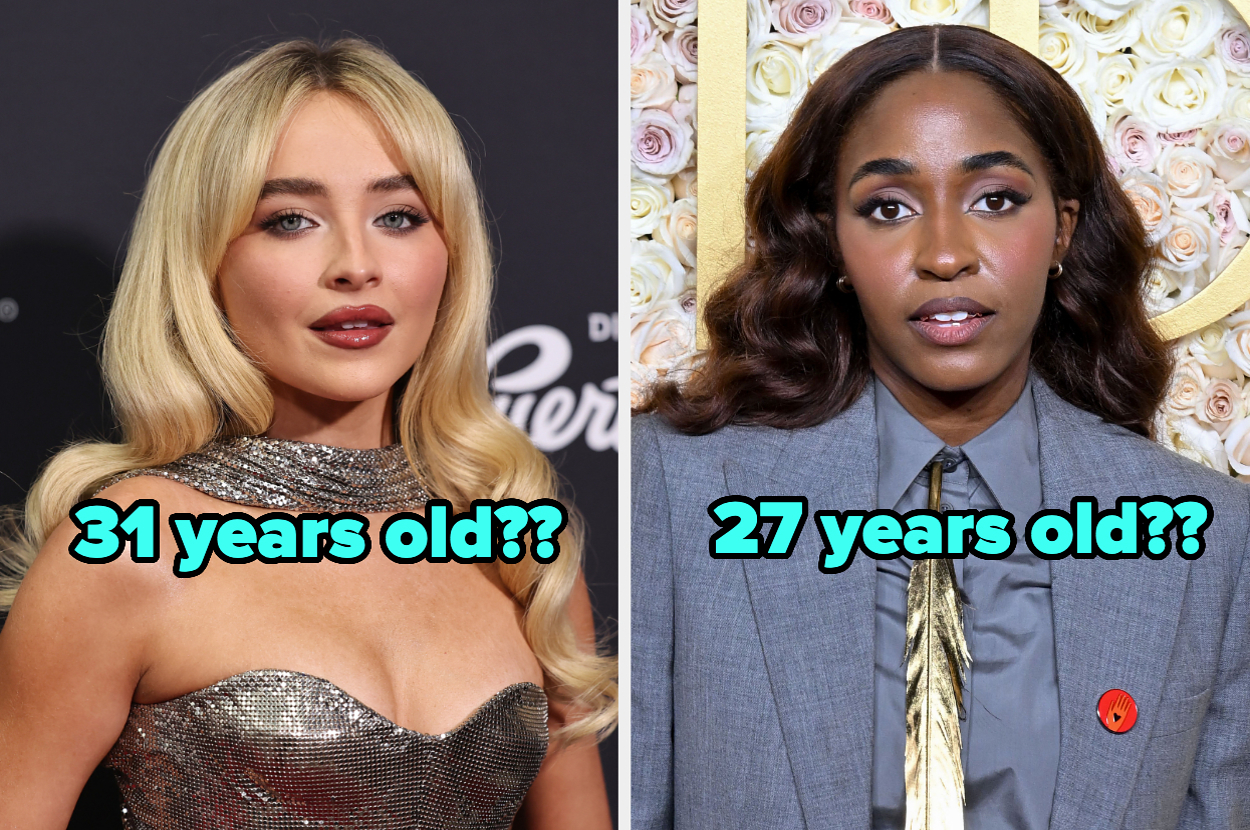







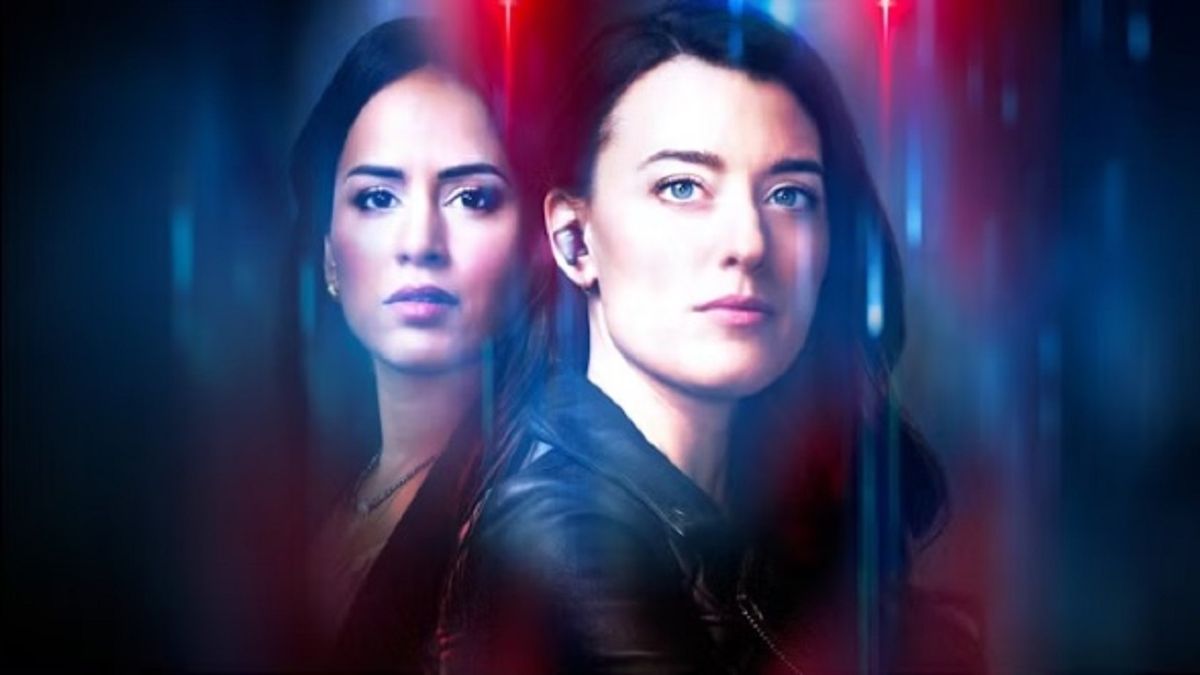
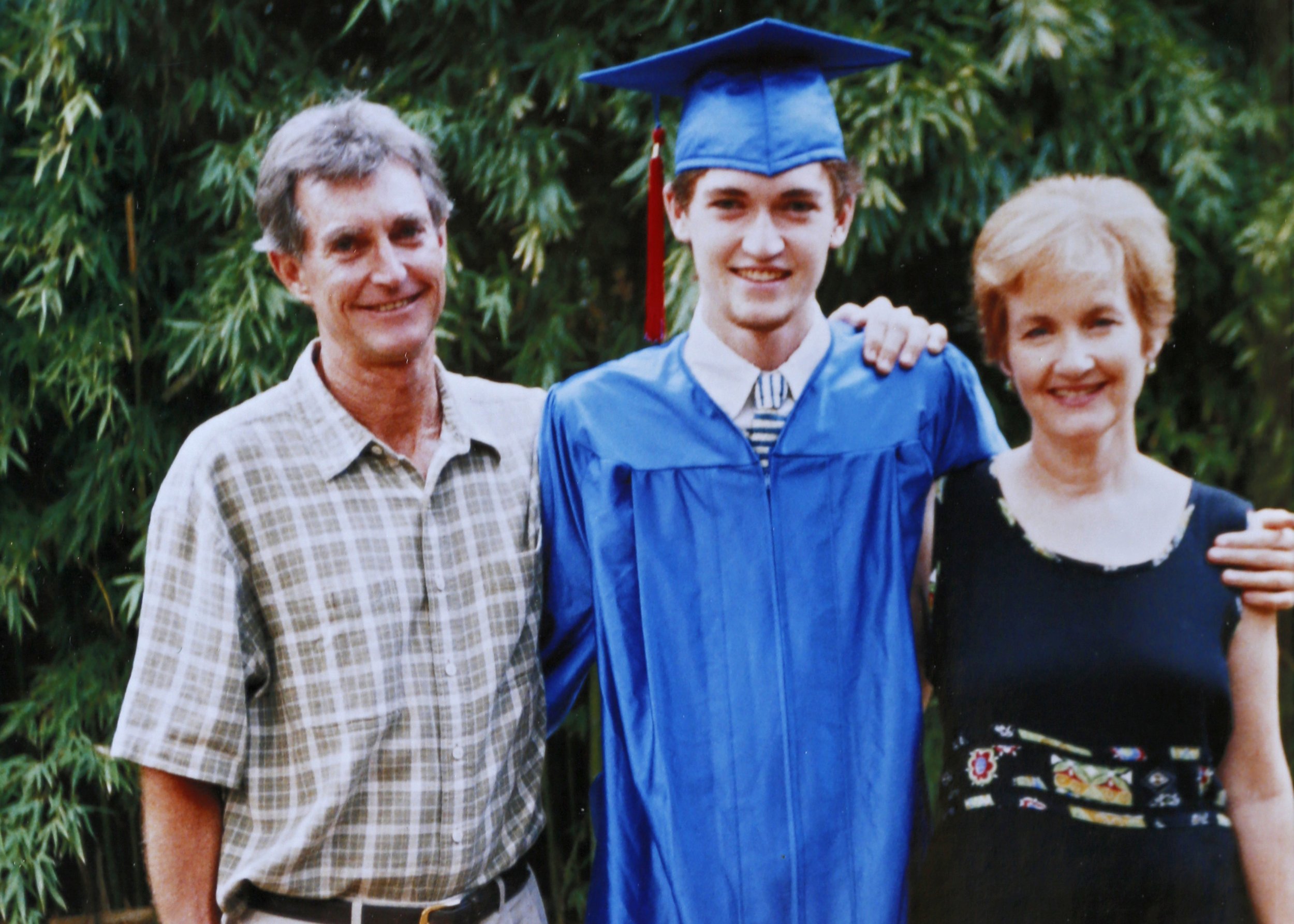

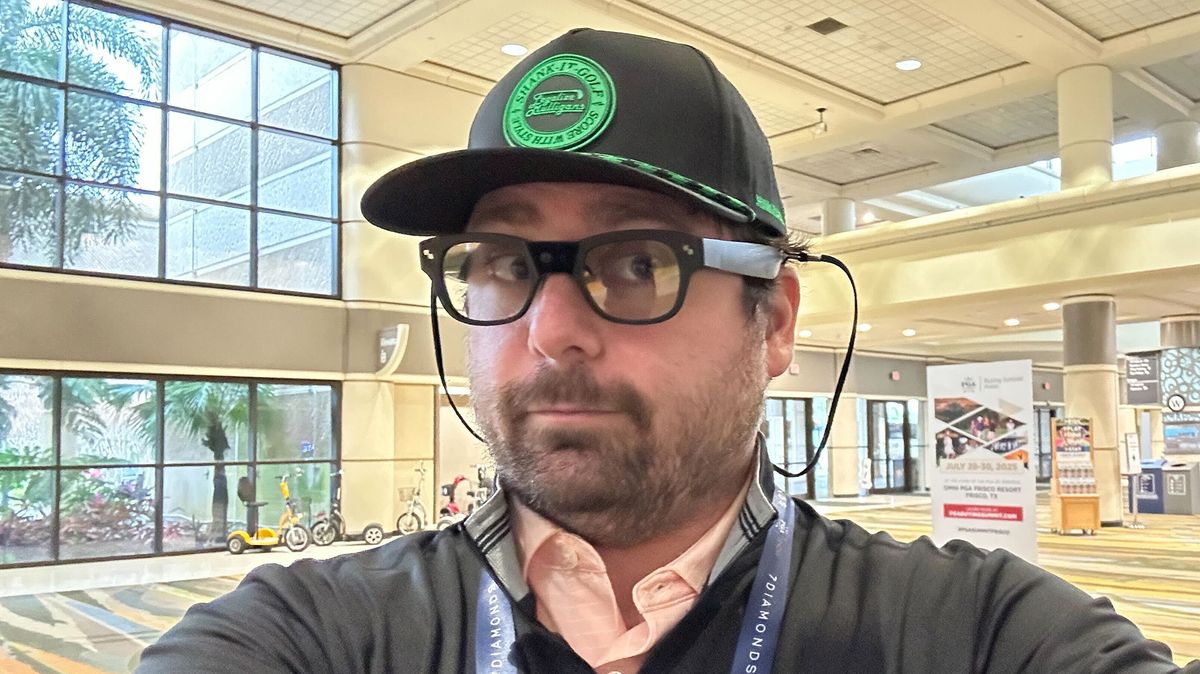
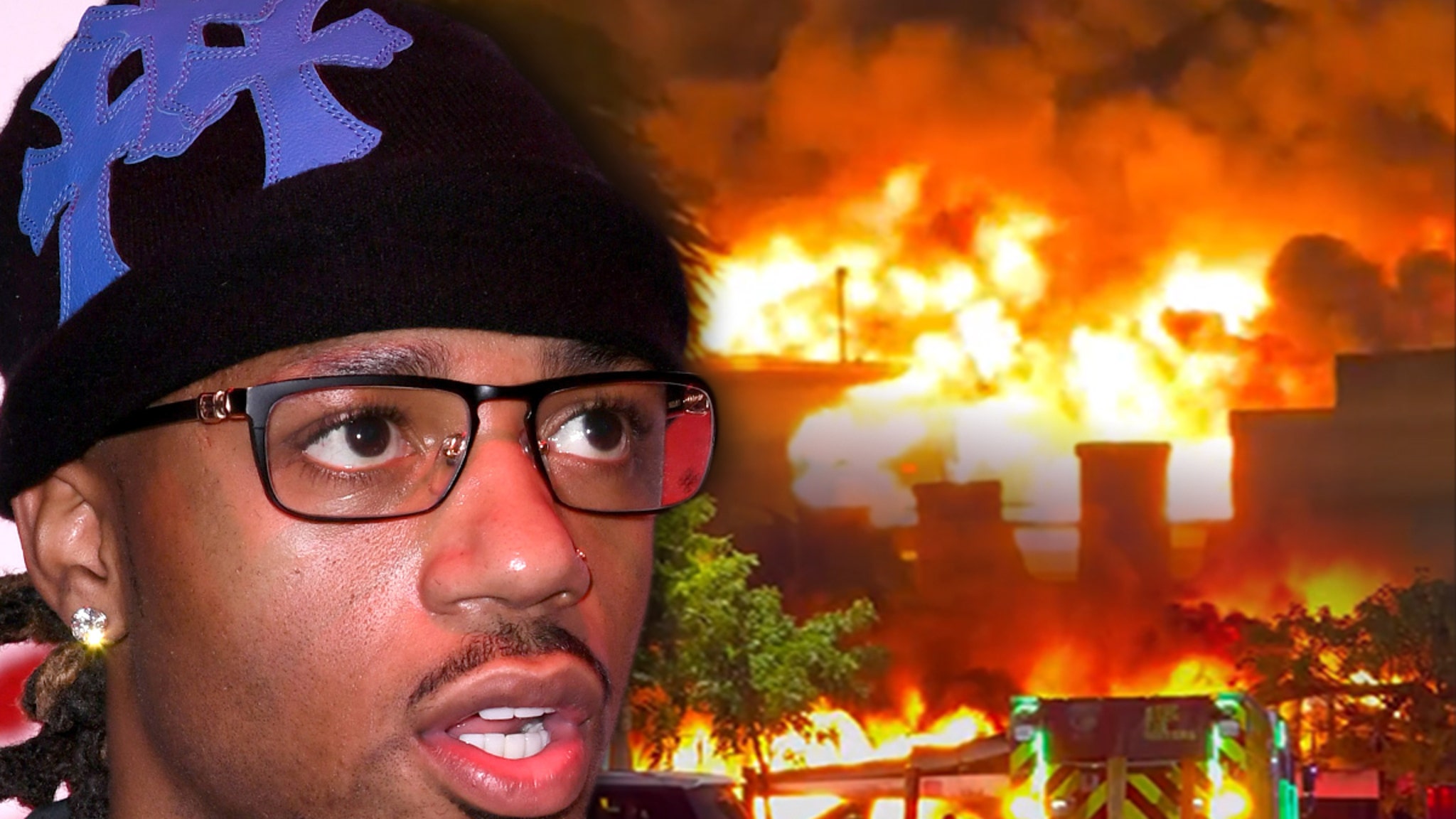



 English (US) ·
English (US) ·